Categorization skills Extra Challenge Worksheets for Ages 4-8
5 filtered results
-
From - To
Welcome to our "Categorization Skills Extra Challenge Worksheets for Ages 4-8"! Designed to enhance critical thinking and organization, these engaging worksheets provide a fun way for young learners to refine their categorization skills. Children will embark on adventurous learning with various activities that encourage them to group items by attributes such as color, shape, and size. Our worksheets not only challenge their cognitive abilities but also foster creativity and independent thinking. Ideal for both classroom and home learning, these resources will equip your little ones with essential skills to understand the world around them. Download now to inspire curiosity and learning!
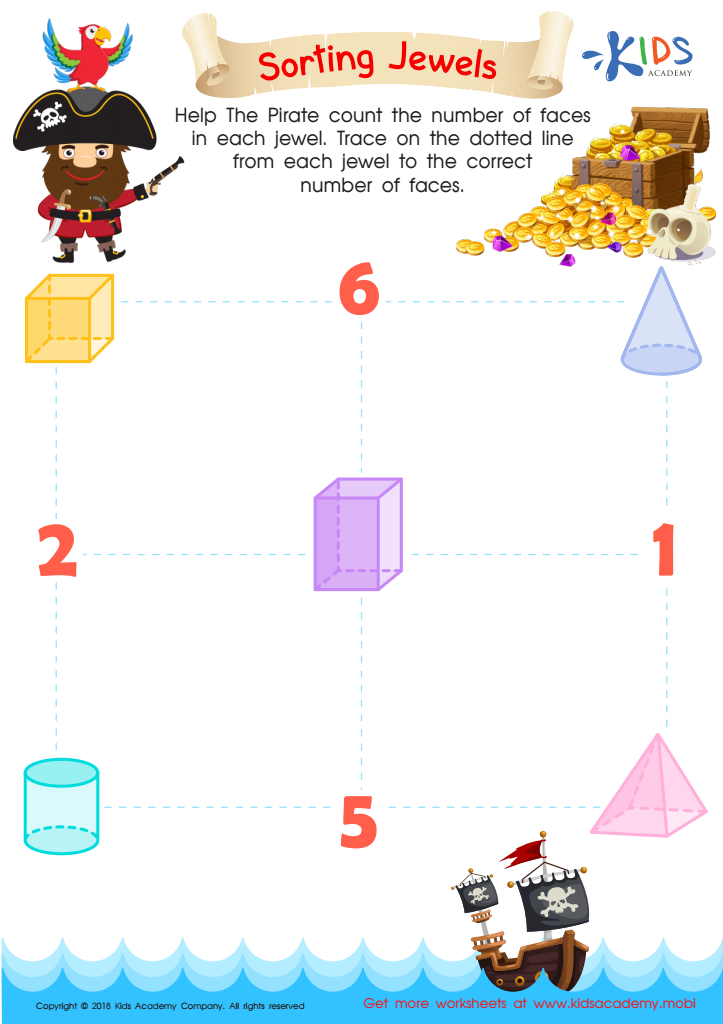

Sorting Jewels Worksheet
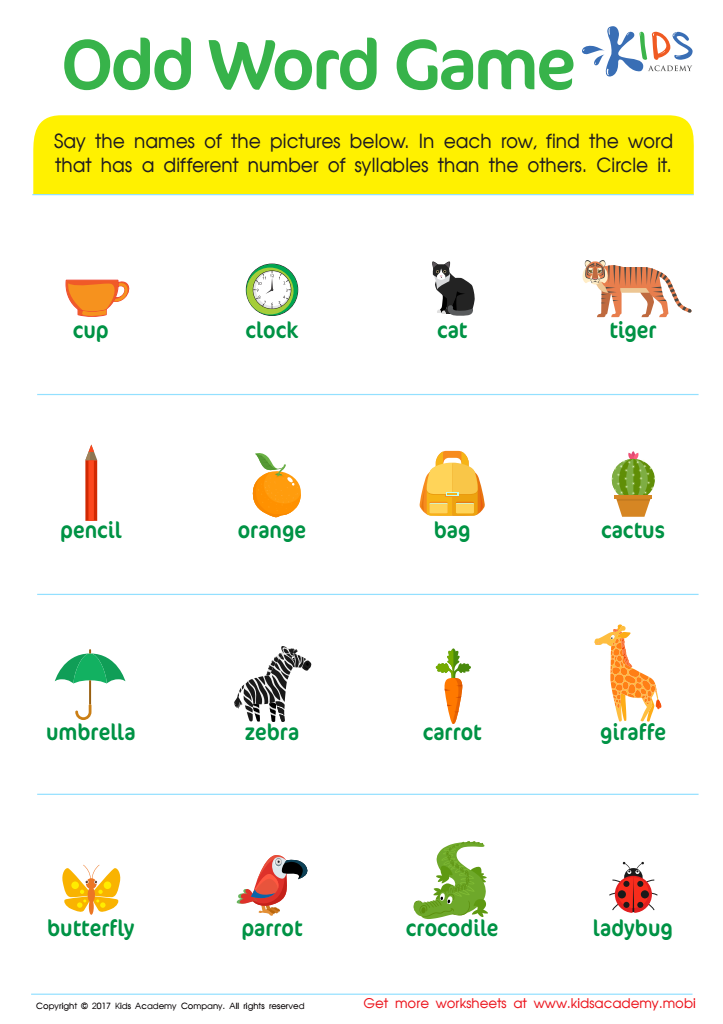

Count Syllables: Odd Word Game Worksheet
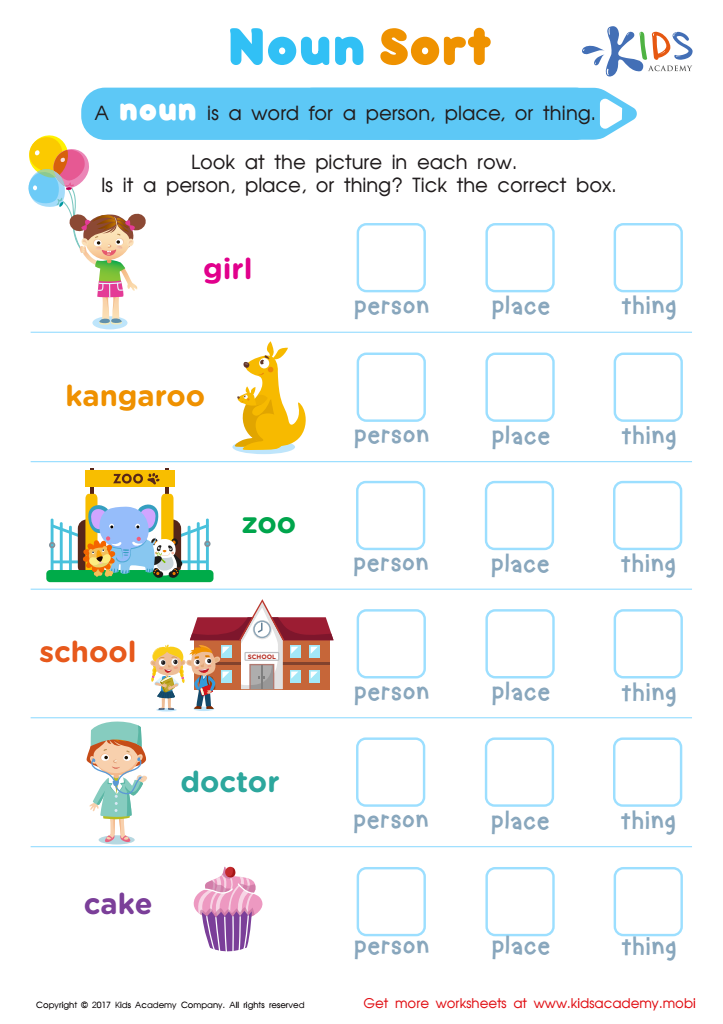

Noun Sort Printable
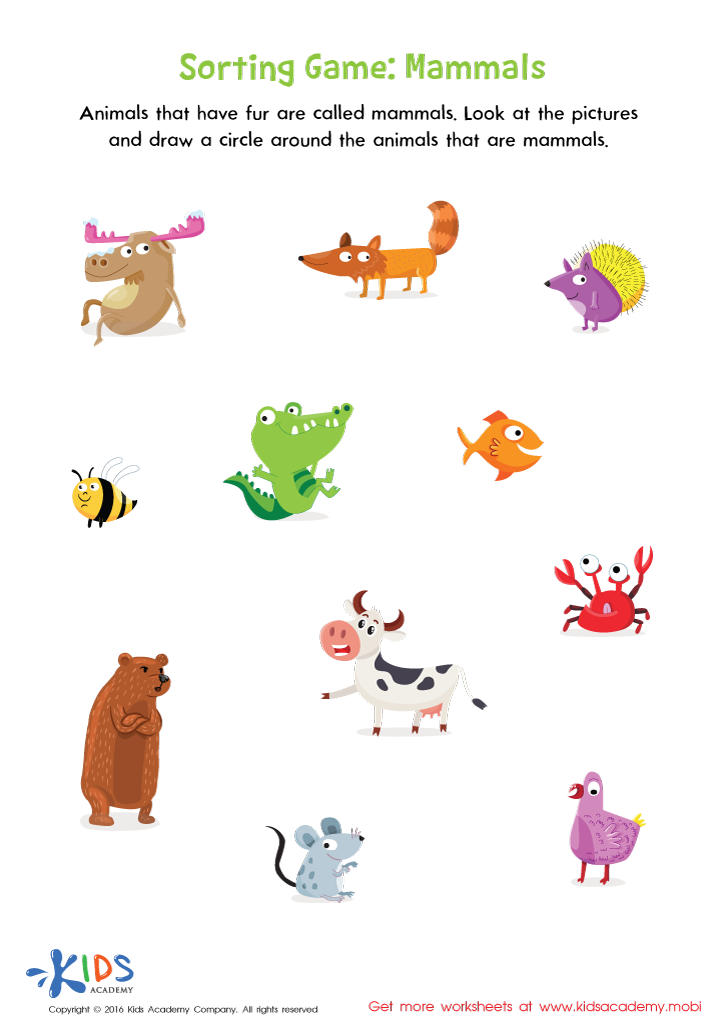

Mammals Sorting Worksheet
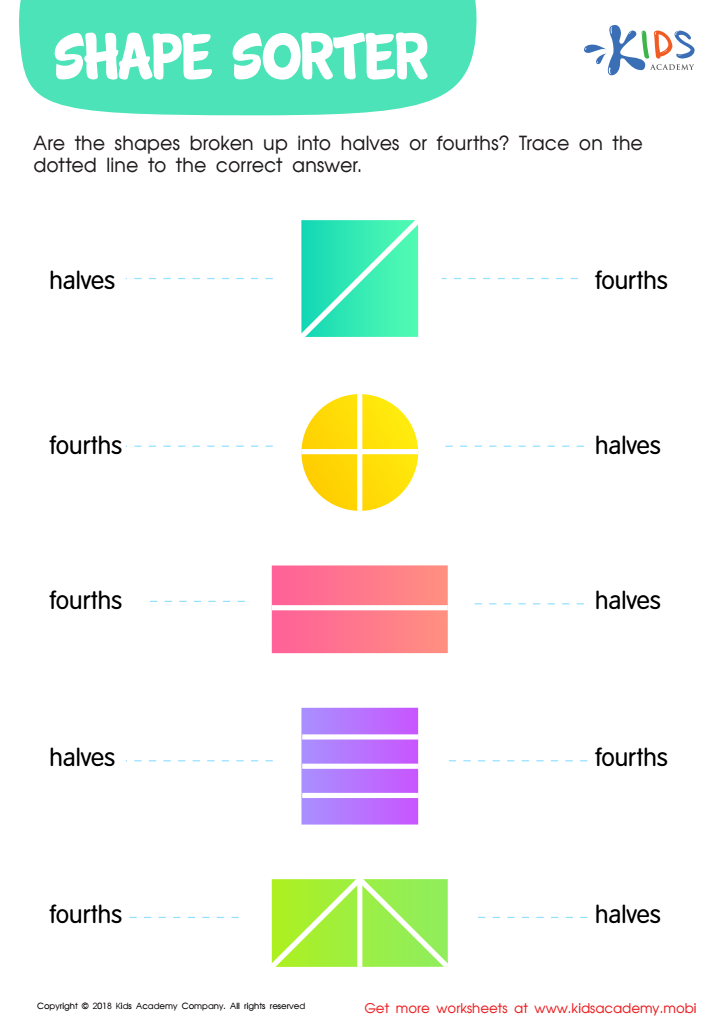

Shape Sorter Worksheet
Parents and teachers should place a significant emphasis on developing categorization skills in children aged 4-8 because these abilities form the foundation for critical thinking, problem-solving, and cognitive development. Categorization, which involves grouping items based on shared characteristics or attributes, helps children process information more efficiently, enabling them to make connections and recognize patterns in their environment.
When children learn to categorize, they acquire essential organizational skills that aid in understanding complex concepts later in life. Cognitive tasks such as sorting colors, sizes, or shapes enhance their comprehension, supporting early math and literacy skills. Additionally, categorization encourages language development as children learn to describe and communicate their reasoning, fostering vocabulary expansion.
By incorporating extra challenges that focus on categorization, parents and teachers can engage children in stimulating activities that promote creativity and exploration. These challenges can include sorting games, puzzles, or thematic projects that inspire collaboration and teamwork.
Ultimately, honing categorization skills equips young learners with the ability to approach real-life situations with a critical mindset, laying the groundwork for lifelong learning and adaptability. Supporting children in developing these essential skills is crucial in fostering their academic success and overall confidence.
 Assign to My Students
Assign to My Students













